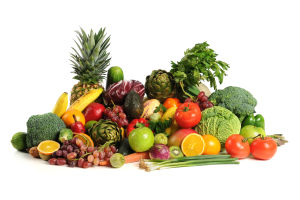Nom, nom, nom: Time for WU students to eat healthy
March 13, 2014
Considering March is Nutrition Month, an appropriate thing to have at hand are some nutrition tips, these apply specifically to college students to help make sure they are getting proper nutrition.
One complaint that sometimes occurs among college students is they do not care for the types of food that are served in the dining facilities on campus.
“I would recommend they talk with the staff in the dining hall to offer suggestions,” said Debbie Isaacson, assistant professor in the Washburn School of Nursing “I think they would love to hear from students what foods they do and do not like so that they can make a variety of meals more available.”
Tiffany McManis, a nurse practitioner in Student Health Services, says there are a variety of food plans available for students to choose from because the menu is always changing. She also says dining services is open to student suggestions for different menu items. So if a student has a particular item they would like to see on the menu, they should submit a request to the dining hall director.
Another situation that goes down in college is that students will have classes scheduled during normal meal times. In spite of this, dining facilities’ hours are usually long enough to allow students time to eat a meal before or after class. If this is really not possible, then the student can ask the professor if they would allow them to eat lunch in class.
There are some classes, like science lab classes, however, where this would not be a possibility. It was also suggested that in these situations students consider bringing snacks and water with them to help them stay satisfied and hydrated. Some examples of snacks that are recommended for students to have on hand are fresh fruits and vegetables and unsalted mixed nuts or granola.
College students need to make sure they obtain adequate nutrition. They should eat a variety of fresh fruits and vegetables. They should choose to eat lean meat that has been grilled, baked or broiled. Students should try to avoid foods that have been fried or highly processed as they can cause weight gain.
They should also try to limit foods that have a high sugar content. The vending machines on campus now have some healthier options available for students. Students should also try to avoid consumption of energy drinks and drink at least 48 ounces of water every day.



